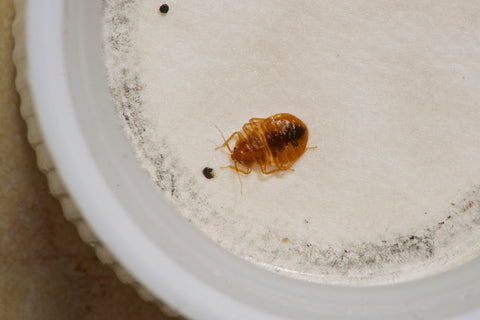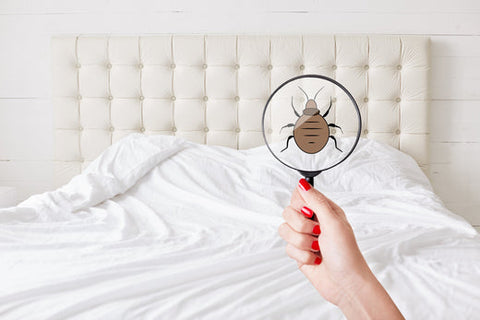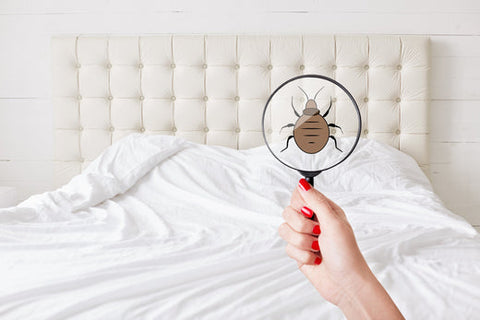Bed bugs can be a nightmare, but there are ways to keep them at bay. Prevention is crucial when it comes to these persistent pests.
In this post, we'll share top tips for effective bed bug treatment using non-toxic cleaning products. Our advice is simple and practical, helping you avoid infestations without harsh chemicals.
Whether you're dealing with a current problem or just want to be prepared, these tips will guide you. Let's dive into how you can keep your home bed bug-free with ease.
Overview of Effective Non-Toxic Cleaning Products
Before diving into the tips, it’s important to understand which non-toxic cleaning products can effectively combat bed bugs. Some of these include:
- Diatomaceous Earth: A powdery substance made from fossilized algae that can dehydrate and kill bed bugs.
- Essential Oils: Oils like tea tree, lavender, and eucalyptus are known for their insect-repelling properties.
- Vinegar: Its acidic nature makes it a good disinfectant and a mild bed bug deterrent.
- Baking Soda: Can dehydrate bed bugs when applied to infested areas.
- Steam Cleaners: High temperatures can effectively kill bed bugs and their eggs without the need for chemicals.
Top Eleven Tips for Preventing Bed Bugs Using Non-Toxic Cleaning Products
Tip 1: Regular Vacuuming
Vacuum your home regularly, paying special attention to cracks, crevices, and seams in furniture. Use a vacuum with a HEPA filter and dispose of the vacuum bag or contents immediately after cleaning to prevent bed bugs from escaping.
Tip 2: Diatomaceous Earth Application
Sprinkle diatomaceous earth around the perimeter of rooms, under furniture, and in any cracks or crevices. This non-toxic powder works by dehydrating bed bugs, effectively killing them over time.
Tip 3: Essential Oil Sprays
Create a spray using essential oils like tea tree, lavender, or eucalyptus diluted in water. Spray this mixture around your home, focusing on areas where bed bugs are likely to hide, such as mattress seams, bed frames, and baseboards.
Tip 4: Regular Beg Bug Laundry Treatment
Wash and dry your bedding, curtains, and clothing on the highest heat setting. Bed bugs and their eggs cannot survive high temperatures, making your laundry routine an effective method for control.
Tip 5: Mattress Maintenance
Encase your mattress and box spring in a bed bug-proof cover. This prevents bed bugs from entering or escaping, reducing the likelihood of an infestation. Regularly inspect and clean your mattress covers as well.
Tip 6: Baking Soda Treatment
Apply baking soda to infested areas, like mattress seams and cracks in furniture. Leave it for a few days before vacuuming it up to ensure maximum effectiveness in dehydrating bed bugs.
Tip 7: Declutter Your Home
Keep your home clutter-free to reduce hiding spots for bed bugs. Regular decluttering makes it easier to spot and eliminate bed bugs before they become a significant problem.
Tip 8: Use Vinegar as a Disinfectant
Clean surfaces with vinegar, especially around bed frames and furniture. Vinegar can disrupt the scent trails that bed bugs use to find their way, making it harder for them to congregate.
Tip 9: Steam Cleaning
Invest in a steam cleaner to treat mattresses, furniture, and carpets. The high temperature of the steam can kill bed bugs and their eggs on contact, providing an effective non-toxic solution.
Tip 10: Inspect Second-Hand Items
Thoroughly inspect and clean any second-hand furniture, clothing, or other items before bringing them into your home. Bed bugs often hitch a ride on used items, leading to new infestations.
Tip 11: Carry a Bed Bug Travel Spray
When traveling, carry a non-toxic bed bug spray for added protection. Spray your luggage and hotel room before settling in to prevent bringing any unwanted souvenirs home.
Buy spotless essentials to clean and always have pest control readily available. By following these tips and taking proactive measures, you can effectively prevent or control bed bugs without exposing yourself to harmful chemicals. Stay diligent and stay bug-free!
Additional Measures for Severe Infestations
For severe infestations, it may be necessary to take additional measures beyond routine cleaning. Consider the following:
- Professional Pest Control: Contact a pest control service that specializes in non-toxic treatments. Ensure they use safe methods that won’t harm your family or pets.
- Heat Treatment: Some professional services offer heat treatments that raise the temperature of your home to levels lethal to bed bugs.
- Regular Monitoring: Use bed bug interceptors and traps to monitor and catch any remaining bed bugs, ensuring the infestation is fully eradicated.
Conclusion
Preventing and controlling bed bugs doesn’t have to involve harsh chemicals. With regular maintenance and the use of non-toxic cleaning products, you can keep your home bed bug-free.
Remember, consistency is key. By incorporating these tips into your cleaning routine, you can effectively prevent and control bed bug infestations.




